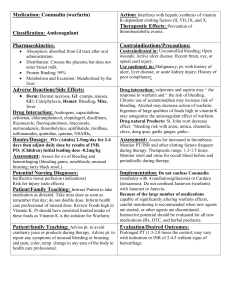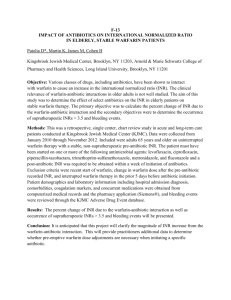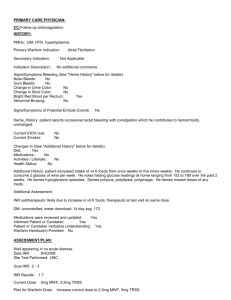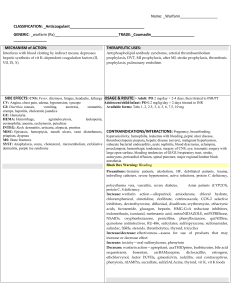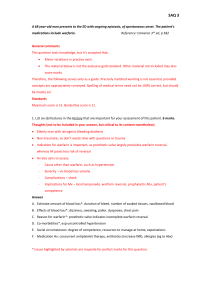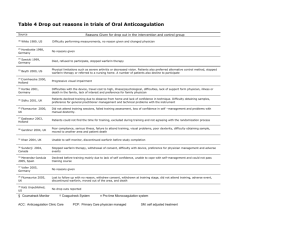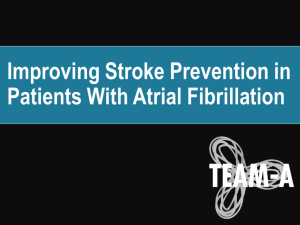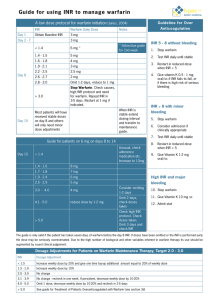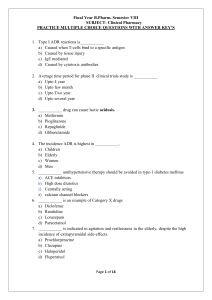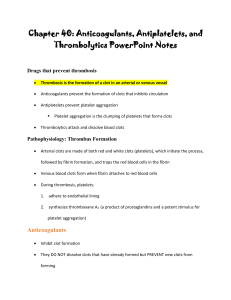Warfarin (Coumadin®) TEACHING Handout Warfarin prevents new blood clots from forming.
advertisement
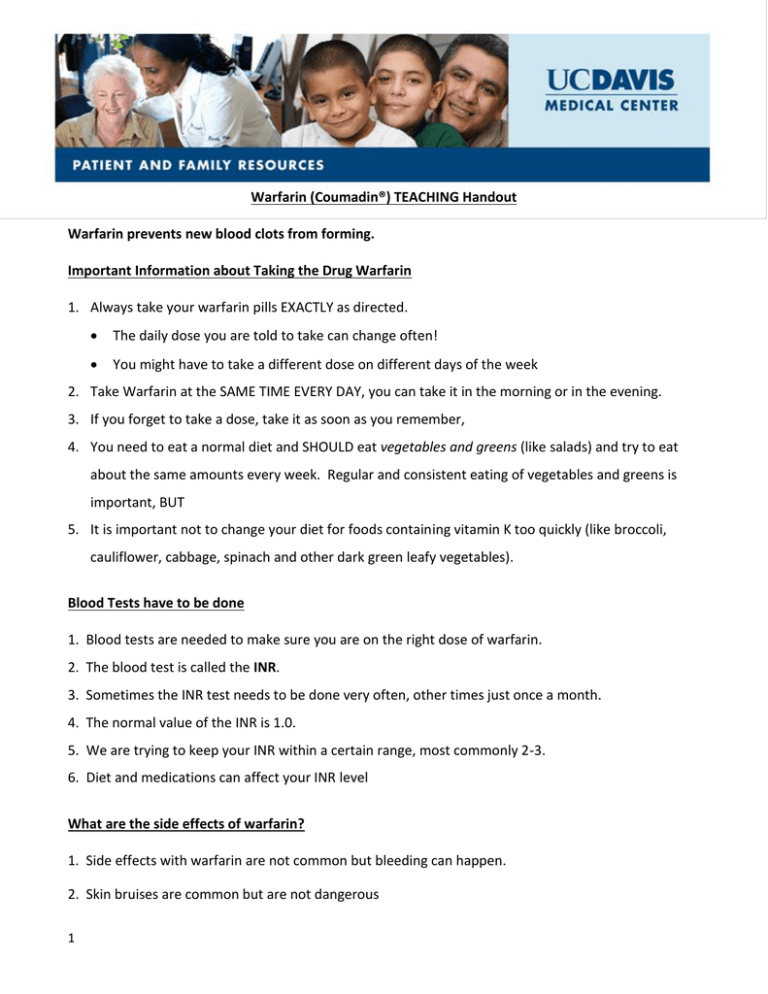
Warfarin (Coumadin®) TEACHING Handout Warfarin prevents new blood clots from forming. Important Information about Taking the Drug Warfarin 1. Always take your warfarin pills EXACTLY as directed. The daily dose you are told to take can change often! You might have to take a different dose on different days of the week 2. Take Warfarin at the SAME TIME EVERY DAY, you can take it in the morning or in the evening. 3. If you forget to take a dose, take it as soon as you remember, 4. You need to eat a normal diet and SHOULD eat vegetables and greens (like salads) and try to eat about the same amounts every week. Regular and consistent eating of vegetables and greens is important, BUT 5. It is important not to change your diet for foods containing vitamin K too quickly (like broccoli, cauliflower, cabbage, spinach and other dark green leafy vegetables). Blood Tests have to be done 1. Blood tests are needed to make sure you are on the right dose of warfarin. 2. The blood test is called the INR. 3. Sometimes the INR test needs to be done very often, other times just once a month. 4. The normal value of the INR is 1.0. 5. We are trying to keep your INR within a certain range, most commonly 2-3. 6. Diet and medications can affect your INR level What are the side effects of warfarin? 1. Side effects with warfarin are not common but bleeding can happen. 2. Skin bruises are common but are not dangerous 1 3. Bleeding signs: Gums that bleed after brushing your teeth Nosebleeds lasting more than 15 minutes Bleeding from a cut that does not stop for 15 minutes Urine that looks red or that is dark like coffee Stool (BMs) that is covered with blood or that is black Vomit that is bright red or that looks like coffee BLEEDING 1. If you bleed from the skin or from the nose, apply pressure with your fingers. 2. If the bleeding lasts more than 15 minutes: Call your doctor or Call your anticoagulation clinic, or the UC Davis Anticoagulation Clinic at 916-734-8158, or Go to the nearest Emergency Room Do not start or stop any prescription medication or over-the-counter medication before talking to your physician or pharmacist If you hit your head hard, then you should call or see your doctor immediately, or go to an emergency room. Reviewed by MPEC January 2014
